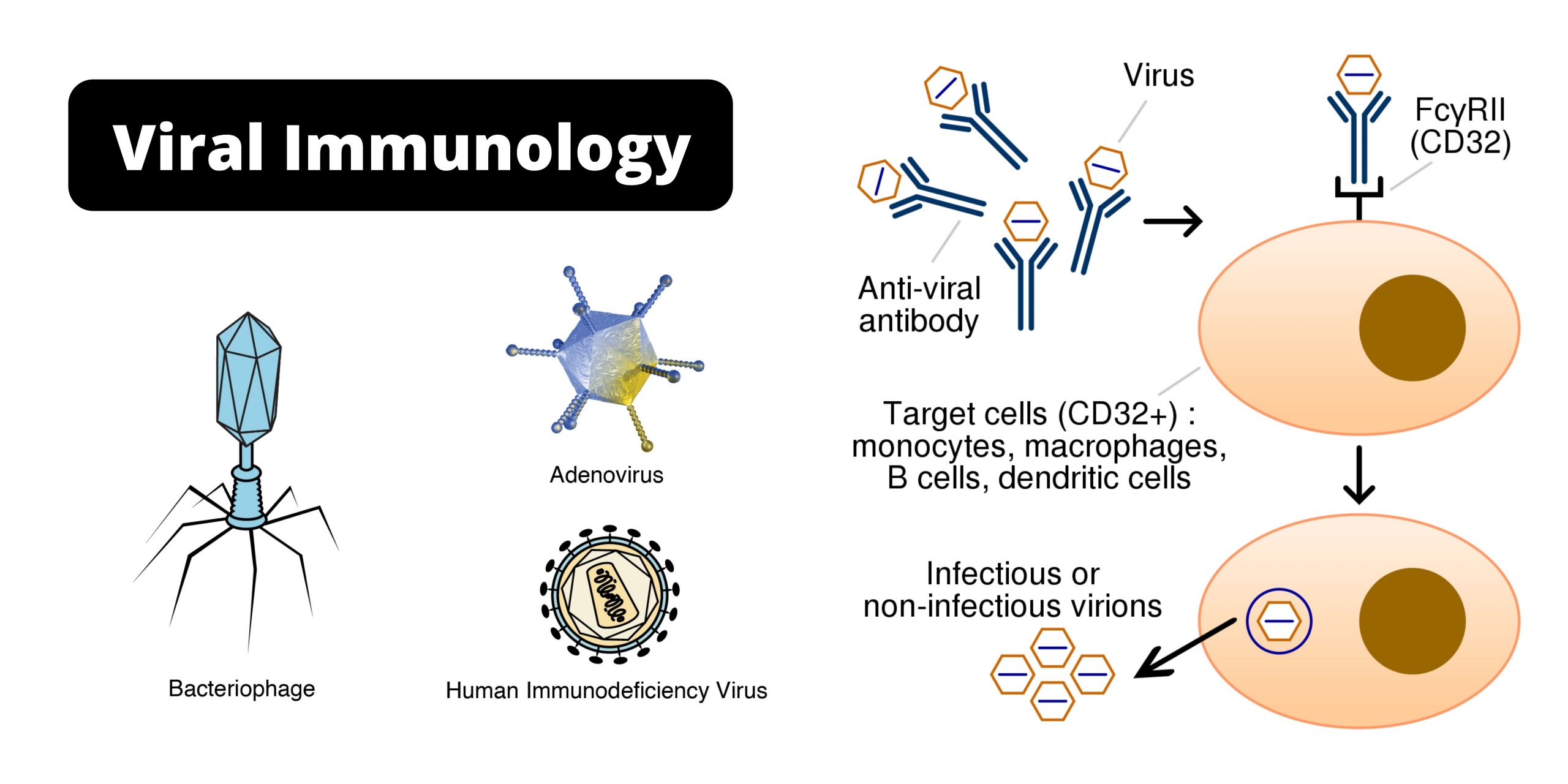What is Viral Immunology?
Viruses are extremely immunegenic and cause two kinds of immune responses: the humoral and the cellular.
The range of specificities of B and T cells is derived from changes in the somatic genome and rearrangements.
T B cells and T typically recognise the exact epitopes within the exact virus. B cells recognize the free proteins unaltered in their original 3-D configuration while T cells typically view Ag in a denatured form. Ag in a denatured state together in conjunction with MHC molecules.
The features of an immune reaction for the exact virus can be different for different individuals based on their genetic makeup.
It is responsible for preventing infection by this virus (neutralization).
The IgG and IgM class are particularly relevant. IgM as well as the IgG class are especially important to protect against viral infections, which are often accompanied by viraemia. The antibodies from IgA class are particularly relevant for defense against viraemia. IgA class are essential for infections contracted through the mucosa. (the nose and the intestinal tract)
However, the immune system kills the infected cells that express viruses’ proteins onto their surface including glycoproteins that envelope viruses have and occasionally the essential proteins of these viruses.
